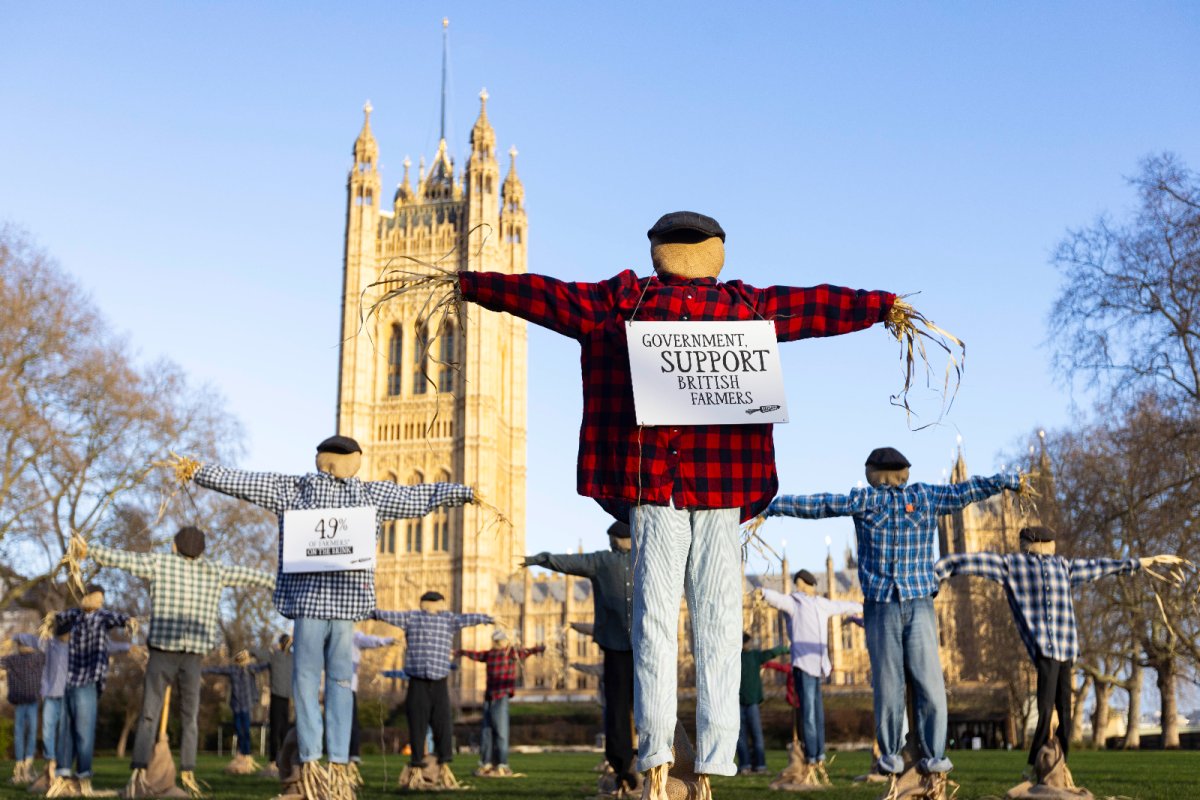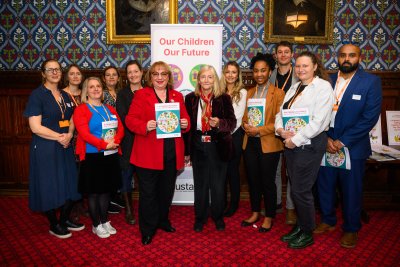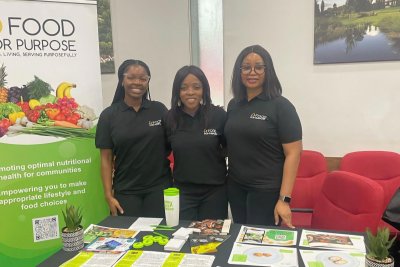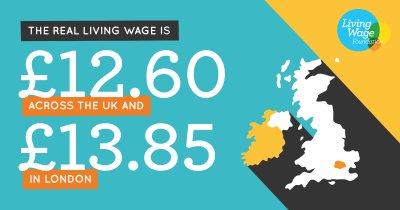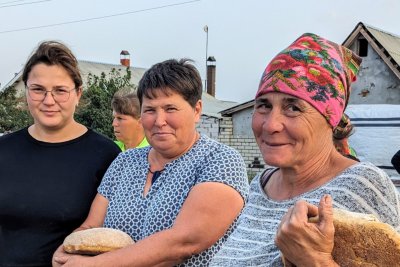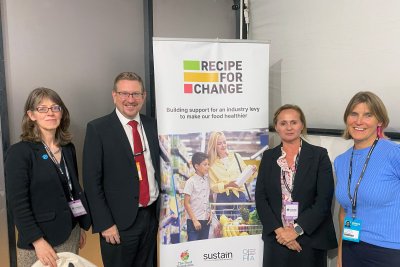 Scarecrow protest outside Parliament. Credit: Riverford Organic Farmers
Scarecrow protest outside Parliament. Credit: Riverford Organic Farmers
Building momentum - where next in the fight for supply chain fairness?
After the huge public support for Riverford's #GetFairAboutFarming campaign, its aims were debated in Parliament. In this blog, Will White, our Sustainable Farming Coordinator, looks at the current state of fairness within the supply chain and outlines the actions that farmers and the public can undertake to keep pushing for the much-needed regulatory reforms that will reshape our food supply chain.
The urgent need for fairness in farming
Sustain and others have been underlining the economic, environmental, and social case for more fairness in the agri-food chain for years.
The issue of fairness in farming has never been more salient. Farmers are being asked to ensure food security, protect nature, and meet net-zero targets, all while being put under huge financial pressure resulting from supermarket dominance. This pressure inhibits their ability to invest in long-term, nature-friendly practices, hindering the transition to a more sustainable agricultural model.
95% of our food is sold through just 10 retailers, giving farmers little negotiating power. The 'just in time' retail model, while efficient on the surface, creates a fragile system that often leads to overproduction and environmental harm.
Evidence shows that huge amounts of money are extracted out of the system as costs and profits. Sustain's 'Unpicking Food Prices' report reveals that farmers often receive less than 1p of the profit from their produce. With 40% of farms earning less than £25,000 annually, small-scale agroecological farming is becoming financially unviable.
Helen Browning, CEO of the Soil Association said:
"The government must finally listen to hard-pressed farmers, with nearly half those surveyed fearing they will go out of business within a year, and take action to ensure that their livelihoods are safeguarded through fair trading policies. Youngsters are reluctant to come into the sector because the playing field is so heavily stacked against them. We must do everything in our power to ensure that retailers are held accountable for their behaviours."
The statistics are alarming: 49% of farmers fear going out of business in the next year, with 75% citing supermarkets as the primary cause. The mental health impact is significant too, with 61% of farmers reporting negative effects due to supply chain unfairness. Fairness is not just an economic issue; it's about human well-being.
Current developments and challenges
There's now a clear public mandate to reform the current regulations in the agri-food supply chain - with over 110,000 signatures on Riverford's petition and further 11,000 letter sent to MPs across the UK advocating for greater fairness in farming.
Monday's debate demonstrated a clear political impetus too, with near-unanimous support among MPs from various parties for the petition's goals of reforming the Groceries Supply Code of Practice (GSCOP) to better protect farmers.
However, the response from Mark Spencer MP, Minister for Farming, suggested a preference for statutory codes under the Agriculture Act rather than expanding the GSCOP. These codes, as acknowledged by Spencer, are progressing slowly; with it still being unclear who will regulate these codes. With so many farmers and growers fearing closure within a year, more urgency is needed from government. There's also clear risks of siloed thinking with the current government strategy of having two parts of the same supply chain regulated by different government departments (as proposed in Figure 1), which was pointed out by David Jones MP during the debate.
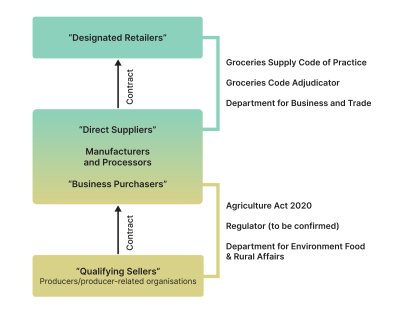
For more detail of the debate and the weaknesses in our food supply chain, you can read the debate transcript and Sustain's briefing for MPs before the debate.
Looking ahead: opportunities for influence
There is now a clear consensus for enhancing and broadening the scope of the GSCOP and GCA. It's crucial to keep advocating for governmental action to redistribute risks more equitably along the supply chain. Several ongoing policy inquiries present opportunities for farmers to voice their experiences and influence policy recommendations:
- DEFRA Consultation on Supply Chain Fairness (Fresh Produce Industry): This survey allows growers to express their views on supply chain unfairness and influence upcoming codes of practice. Participate in the survey here.
- The EFRA Committee on Fairness in the Food Supply Chain: Sustain has submitted evidence, but there is still an opportunity for farmers to share experiences of supply chain unfairness and suggestions for improvement.
- The GCA Annual Survey: Open for suppliers to report unfairness at the farm level caused by retailer behaviour. The survey can be filled out online.
Engaging in these surveys and inquiries is pivotal for farmers to make their voices heard and shape the future of the food supply chain.
Sustainable Farming Campaign: Sustain encourages integration of sustainable food and farming into local, regional and national government policies.
Sustain
The Green House
244-254 Cambridge Heath Road
London E2 9DA
020 3559 6777
sustain@sustainweb.org
Sustain advocates food and agriculture policies and practices that enhance the health and welfare of people and animals, improve the working and living environment, promote equity and enrich society and culture.
© Sustain 2024
Registered charity (no. 1018643)
Data privacy & cookies
Icons by Icons8
